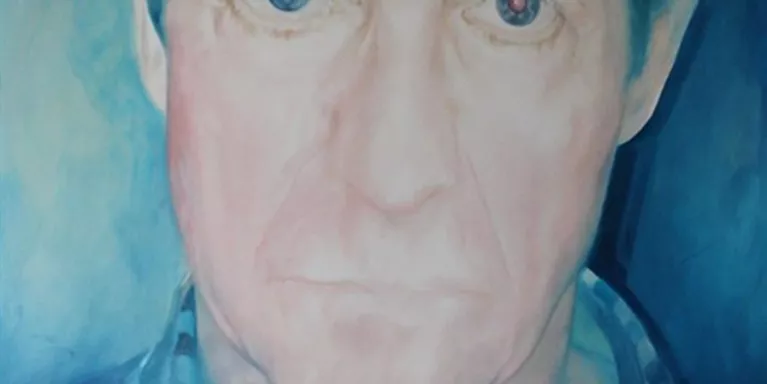How I came to understand my girlfriend's depression
George blogs about how he came to understand his girlfriend's depression.
There is a popular statement in the English language. It’s used in thousands of contexts. ‘Ignorance is bliss’. I generally agree with the statement. If someone at McBurger Fried Chicken King has tampered with your food without you knowing it, you’re not going to feel bad about eating it – simple. But regardless of that fact, can ignorance be damaging? In the modern ‘benefits scrounging’ age its clear to see that ignorance is very damaging and can quite easily distort a persons opinion or perception. Mental health unfortunately falls victim to ignorance.
"I had no idea that it could be a recurring illness – a lifetime struggle."
What is the first thing you think of if someone says mental health? If I was asked that three years ago I’d have answered the same as a vast amount of our population. You’re talking strait jackets, padded cells and dangerous people with illnesses that only ever get any airtime through Hollywood blockbusters.
In February 2011 I finally asked out my girlfriend Hannah. We met for the first time in September the year before but I’d never really got to know her until early 2011. Unlike other couples we settled in together very early on. From day one Hannah started her ‘Great Escape’ style move in operation only instead of mud and dirt secretly tipping out of her trousers it was a toothbrush or a bra.
Shortly after our relationship started I discovered that Hannah was taking anti-depressants medication and that she had suffered from depression in the past. I wasn’t really alarmed by this as my ignorance meant that I treated it like any other illness. You somehow suffered from depression then you were almost cured of it. She’d even told me that it was so bad at one point that she had a stay in hospital to recover. This still didn’t really faze me, but at that point I did start some research. What I was to learn changed my perspective of the illness altogether. I had no idea that it could be a recurring illness – a lifetime struggle. I’d also discovered that mental health wasn’t what it seems. One in three are affected by depression at some point in their lives.
Having said that, I learnt about the illness itself but not really how to deal with it.
During our first six months we were very much in the new couple ‘honeymoon infatuation’ stage. During this time Hannah had ran out of medication. It seems pretty obvious that the infatuation was helping with her illness. I even thought that I was the reason she had stopped taking medication, that I had helped her find happiness – oh dear.
I noticed a change in Hannah’s behaviour as my social life picked up. We’d often intensely argue before I left to go and spend time with my friends. It wasn’t normal behaviour. It wasn’t that I was doing it too much. She didn’t like being away from me. It wasn’t that she didn’t want me to see my friends. She couldn’t really explain what it was at all to be honest. It was certainly the start of a big change in our relationship.
As we progressed things definitely got tougher. We were arguing a lot and often about nothing. At the time of course I thought it was something that would wreck the relationship, I thought Hannah was being unnecessarily militant in her ruling. I’d never considered that it could have been her way of mentally preparing for being without me. We’d often discuss a ‘break up’ after a simple night out. Things were getting worse. It never clicked while this was going on that it might have been down to her depression. This only made matters worse.
It took me a while to actually accept that Hannah’s depression existed. Well not really accept, but understand. I always knew it was there, but didn’t know how to deal with it. I’d been told to take her for a walk on ‘down days’ to take her mind off it. It was declined most of the time. I was getting frustrated. These troughs in mood were becoming more regular. The flat wasn’t helping. It was dilapidated and dark; we’d definitely viewed it with rose tinted spectacles on. We eventually moved to our wonderful flat in Leeds. This did help – a little bit.
I continued to fight back when Hannah was on a down day and suffered her mood swings. I still can’t believe it took me so long to realise that all I had to do was grab her and hug her while she was shouting at me often for nothing. I took it personally every time. I had to fix myself before I could start trying to fix Hannah.
Hannah decided that she was going to go back on medication. We still had two or three weeks to ‘ride out’ while the medication started working. We’d had a ‘last ditch’ conversation where we of course ‘had it out’ and I was given the opportunity to ask her once and for all what I had to do in certain situations. I was still unaware and wanted to change myself. From then on I did just hug her when she was upset, I never questioned why or even said anything, just held her. When she was angry I just left her in a room to read where sure enough, twenty minutes later, she would re-emerge and apologise. Things started to become easier. It didn’t come easy. It took two whole years.
Hannah is my best friend and the love of my life. We’ve created thousands of wonderful memories in our short time together and I can’t wait to make many more with her. The fact that we have come through the difficult times have only made us stronger. Does her illness affect our relationship? Yes; but not as much as in the past. I can identify when she’s feeling crappy and act accordingly. We’re happier than we’ve ever been because I made a few simple changes to my behaviour. It took me long enough but we’re finally there and I love it.
If you are supporting someone with depression our information for friends and family may help. We also have information on looking after yourself as a carer.
Our Infoline can also help you find information about local support and services which may help. Find out how to contact them here


Information and support
When you’re living with a mental health problem, or supporting someone who is, having access to the right information - about a condition, treatment options, or practical issues - is vital. Visit our information pages to find out more.
Share your story with others
Blogs and stories can show that people with mental health problems are cared about, understood and listened to. We can use it to challenge the status quo and change attitudes.

















